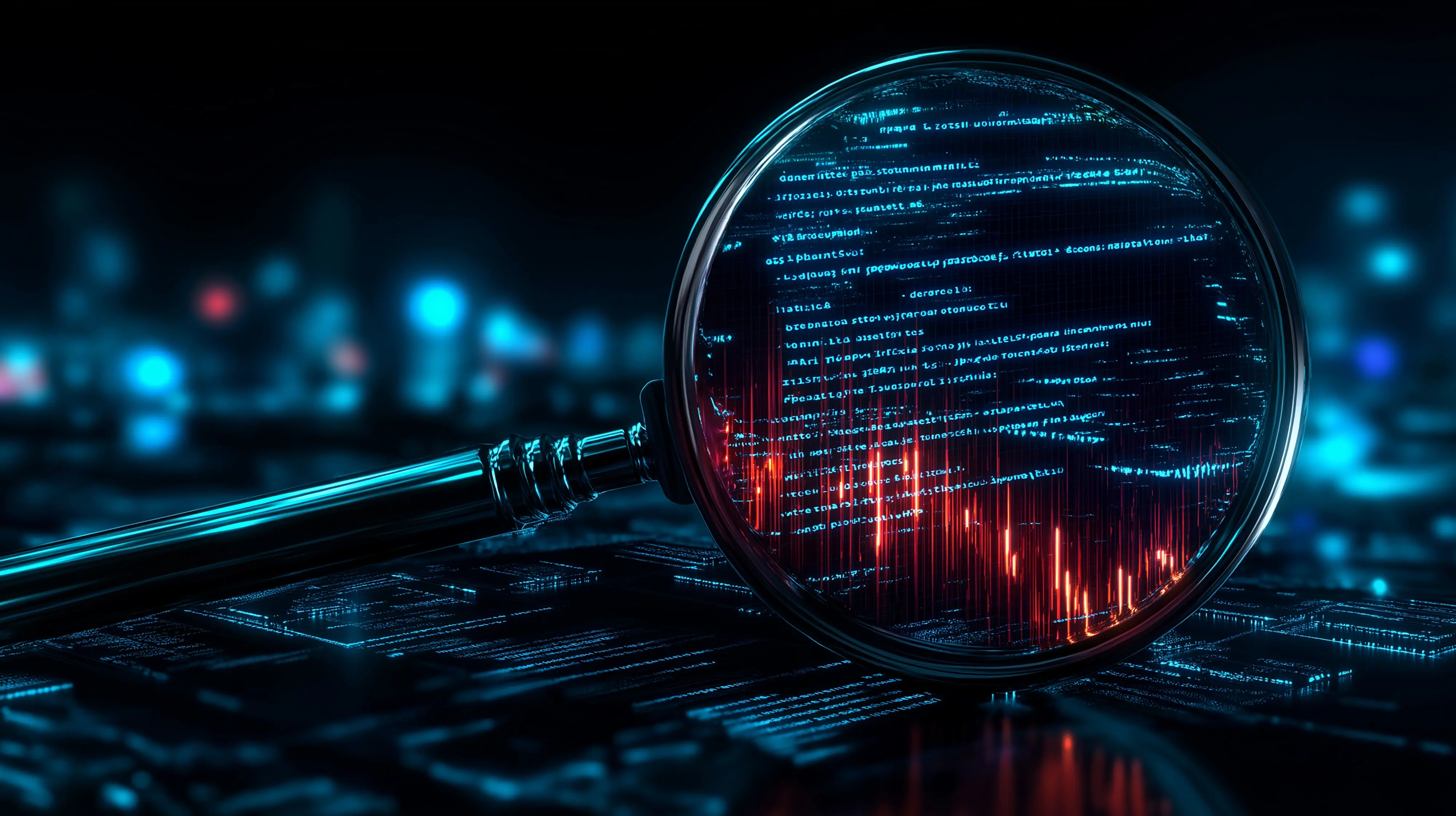How To Secure Information: 3 Tactics For NZ Businesses
NSP Marketing
30 May 2023
6 min
ReadHow To Secure Information In An Organisation: Three Proven Tactics For Kiwi Businesses
Keeping information safe is one of the most important things for your organisation. Fortunately, it’s not as hard as you might think – and there are new security tools and services that can keep information safer than ever.
Next to the trade secrets of how you do business, perhaps nothing your organisation has is more valuable than the information you hold. Information, of course, takes many forms: information about your customers, your internal processes and files, employee records, financial statements – the list could go on for quite some time, and you might have more information than you think.
You probably know some of the security risks for all types of data, particularly cyber security risks for sensitive data. But there’s a whole lot more to it than just data being stolen – and likewise, a whole lot more that can be done to prevent this than just simply having cyber security software.
This guide is dedicated to talking about information security for businesses; why it’s important and what tools and practices you can implement to keep your organisation secure.
Here’s what you will discover:
- Why is information security important?
- What are three tools to make information secure?
- A cyber security solution to secure your future
Why is information security important?
More than 4,000 New Zealand businesses are cyber-attacked every day. Every business or organisation, no matter their size, is at risk. This includes yours too – perhaps you’ve even been the victim of a cyber-attack.
If you have, you know how costly they can be. Not just in terms of immediate financial losses but the risk of what happens when customer information falls into the wrong hands and a loss of trust in a security breach. If customers don’t think their data will be safe with you because of a data breach, they probably won’t want to do business with you. This means the impacts can be long-lasting and severely damaging.
Information security is important because trust is ultimately your stock and trade.
You need people to trust you – and keeping information like customer data safe goes a long way towards building that trust. And with that trust, you can focus more on what your business is about. In other words, it’s a business-first approach – with your customers at the heart of that approach.
Featured Guide: How to Identify a Cyber Attack: 10 Warning Signs

What are three tools to make information secure?
A few different things can help keep your information secure. These are:
1. Cyber Security
This might be the one you’re most familiar with. Cyber security services can help protect you against cyber attacks, keeping your computer systems and the information on them safe.
This is also more important than ever. There was a 15% increase in reported scams and frauds from the first quarter of 2019 in New Zealand. Of the attacks, a whopping 70% involved victims suffering financial losses, the loss of customer information, and/or operational capacity. And just how much was the financial loss all up? About $16.7 million, up $2.6 million in just one year. Given these numbers are from a few years ago, they’re even bigger now.
What this means is the attacks are becoming more sophisticated and the losses more severe. Greater threats demand greater protection – especially as the age of artificial intelligence, which you’ve probably heard about a lot in the news lately, well and truly kicks off. Attacks from artificial intelligence aren’t just coming – they’re already here.
2. Physical security
This isn’t just about how and where your stored data is, such as in file cabinets. It’s also who has access to the information, particularly sensitive data.
This could be more complicated than it sounds. For instance, is the data stored in one place? Multiple locations? Do you have a plan in case something happens, like there’s an earthquake or fire in the place where the data is being stored?
Like cyber security, this also means identifying possible security risks and having a plan to respond when there is a data breach or security breach and minimise exposure to breaches in the first place. This leads to the third tool…
3. Security governance
A lot of things make up security governance. But it all comes down to the framework/plan for the information you have – and the people who have access to it.
This is more than just cyber security and physical security, more than just keeping sensitive information safe through things like limiting who has access to data and having a data security plan. It’s operating processes everyone in your business or organisation should be aware of.
Security governance can include things like:
- Organisation-wide rules about having strong passwords to access computers or folders on computers
- Access controls – who has access to what types of information and who does not.
Have you considered factor authentication? Where someone in your organisation receives a prompt on a secondary device (such as a phone) they must approve to gain access to certain files or company devices?

Security governance can also be what types of data are secured in certain ways – for example, is sensitive personal information about customers like their phone numbers stored more securely than other data? Is business data backed up?
It also includes having plans in place for what to do when there’s a cyber attack or data breach. These plans are made to answer questions such as:
- How do you stop the attack or minimise damage?
- Who in your organisation is notified, and when?
- When are your customers notified if they’ve been affected?
- And how do you prevent a data breach from happening again?
Does your cyber security governance plan also take into account new ways of working, particularly with more people working remotely than ever and hybrid work arrangements in a post-pandemic world? How about new security trends? How are people in your business or organisation taught security awareness, and how is this kept front of mind for them?
It’s all a lot to consider – and does take a fair bit of time. But getting it right and having systems in place is critical – you cannot afford to get it wrong, especially with an ever-increasing number of threats that are becoming more sophisticated than ever.
A cyber security solution to secure your future
The reality is all information is theoretically vulnerable to threats and a data breach. But proactive security means you can spend more time focusing on what your business or organisation is all about.
NSP’s cyber security solutions are easy to install and integrate into your existing information security plan – or could even form the foundations of a new information security plan. With core threat detection, data threat detection and cloud threat detection, you can sleep easy knowing the information is secure. There’s also AI threat detection – leveraging the power of artificial intelligence to identify and neutralise threats.
NSP can save you money and time, becoming an important part of your security governance. We have a security operations team available 24/7 to help investigate threats and quickly act if need be. Our team can also answer any questions you may have, saving you time and money. You can even book a one-hour security consultation so we can better understand your needs.
Put simply, NSP can help you secure your future making sure your information is secure. It’s as simple as that.
CATEGORY
- Article (98)
- Cybersecurity (50)
- Cyber Security (44)
- Digital transformation (31)
- Managed services (30)
- Awareness and education (23)
- Cloud (19)
- IT Risk (14)
- modern workplace (12)
- Collaboration (11)
- Cyber Smart Week (11)
- AI (9)
- Breach (9)
- Backup (8)
- Remote Workers (8)
- microsoft (8)
- video (7)
- copilot (6)
- network performance (6)
- Future of work (5)
- Vulnerability Assessment (5)
- Breech (4)
- Business strategy (4)
- Cyber (4)
- Managed Detection & Response (MDR) (4)
- Microsoft Teams (4)
- 0365 (3)
- CISO (3)
- Culture (3)
- Best Practice (2)
- Business Goals (2)
- CASB (2)
- CIO (2)
- COVID-19 (2)
- Charity (2)
- Construction Industry (2)
- Feed the Need (2)
- Friction-less (2)
- Governance (2)
- IT budget (2)
- Penetration Testing (2)
- Tabletop Exercise (2)
- vCISO (2)
- Assets (1)
- Azure (1)
- BYOD (1)
- Christmas (1)
- Co-pilot (1)
- Deserving Family (1)
- E-Waste (1)
- EPP (1)
- Healthcare (1)
- KPI (1)
- Law Industry (1)
- Legal Industry (1)
- Metrics (1)
- News (1)
- Real Estate Industry (1)
- Restore (1)
- artificial intelligence (1)
- case study (1)
- health IT consultant (1)
- health it (1)
RECENT POST
16 Feb 2026
07 Jan 2026
Let’s stay in touch!
Enter your details below to stay up-to-date with the latest IT solutions and security measures.

.webp)


